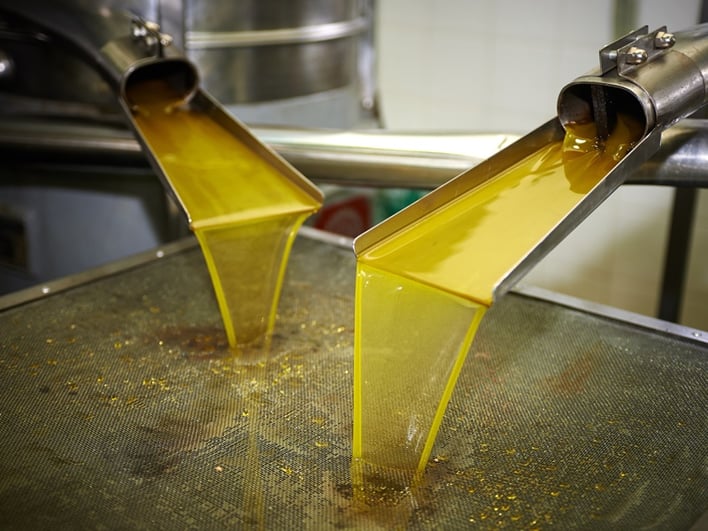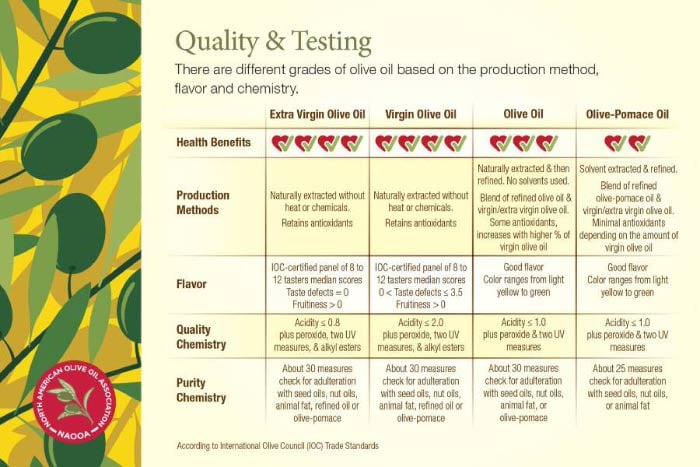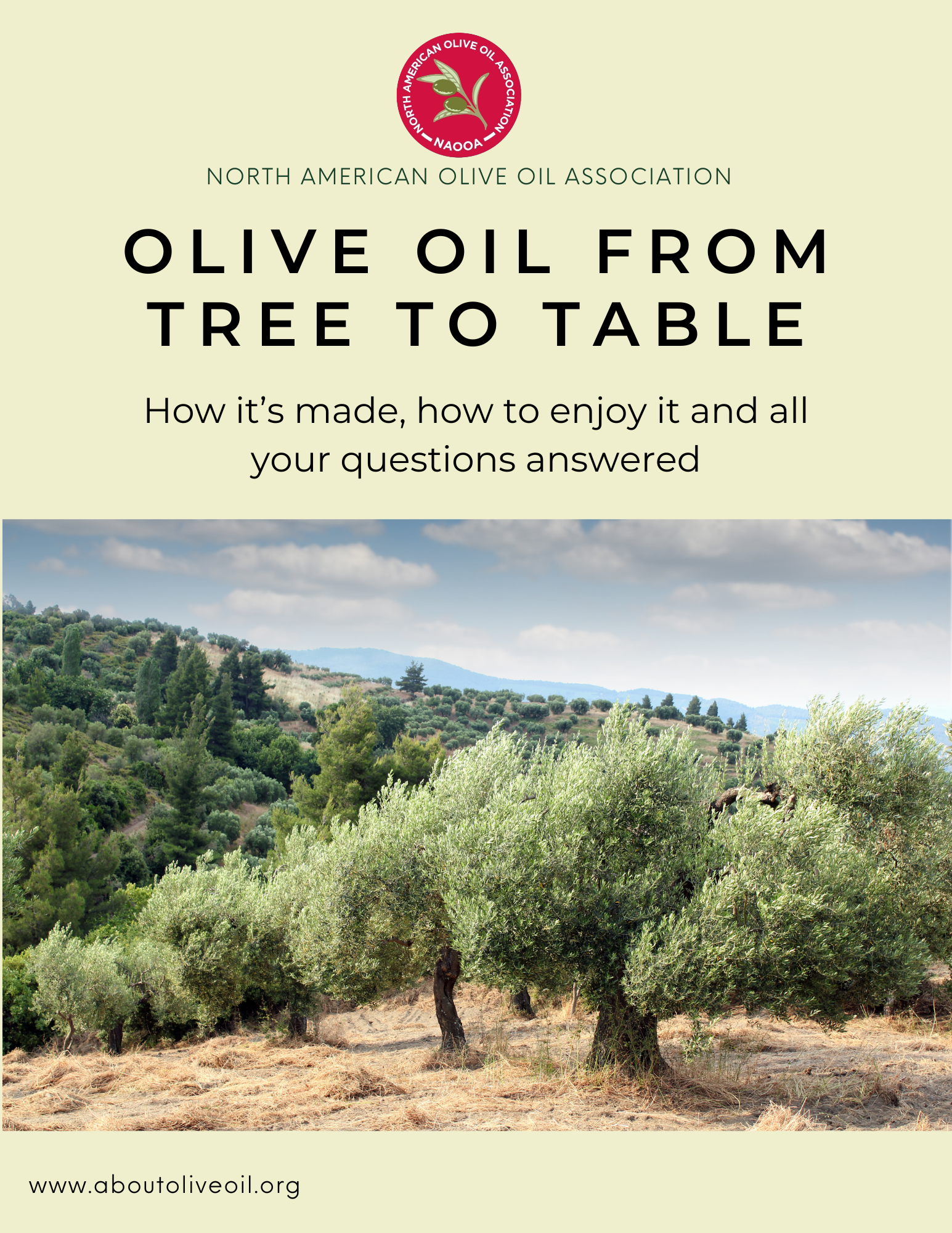
What makes an olive oil "extra-virgin" instead of "virgin"?
Olive oils are graded using the International Olive Oil Council standards. The International Olive Council (IOC) is a United Nations-chartered organization that has been recognized for more than 50 years as the worldwide quality-standard setting body for the olive oil industry.
According to the IOC, both virgin and extra virgin olive oils are extracted by using only mechanical methods (no heat or solvents are allowed). After the oil is extracted, it is graded.
If the olive oil is found to be fruity, has no defects and has a free acidity that is less than or equal to 0.8 , it is graded as extra-virgin.
If the olive oil has minimal defects and is found to have a free acidy between 0.8 and 2.0, it is graded as virgin.
Both extra virgin and virgin olive oils have naturally occurring antioxidants and polyphenols. The quantities of antioxidants and polyphenols, however, do not necessarily depend on whether the oil is extra virgin or just virgin--a mild tasting extra virgin will likely have less polyphenols than a robust tasting virgin.
Note that in North America, virgin olive oil is not generally not sold at retail.
Download our guide to olive oil standards (PDF)
Fore more information on olive oil grading and standards, watch the video below.






 The North American Olive Oil Association is committed to supplying North American consumers with quality products in a fair and competitive environment; to fostering a clear understanding of the different grades of olive oil; and to expounding the benefits of olive oil in nutrition, health, and the culinary arts. | © North American Olive Oil Association. All Rights Reserved.
The North American Olive Oil Association is committed to supplying North American consumers with quality products in a fair and competitive environment; to fostering a clear understanding of the different grades of olive oil; and to expounding the benefits of olive oil in nutrition, health, and the culinary arts. | © North American Olive Oil Association. All Rights Reserved.